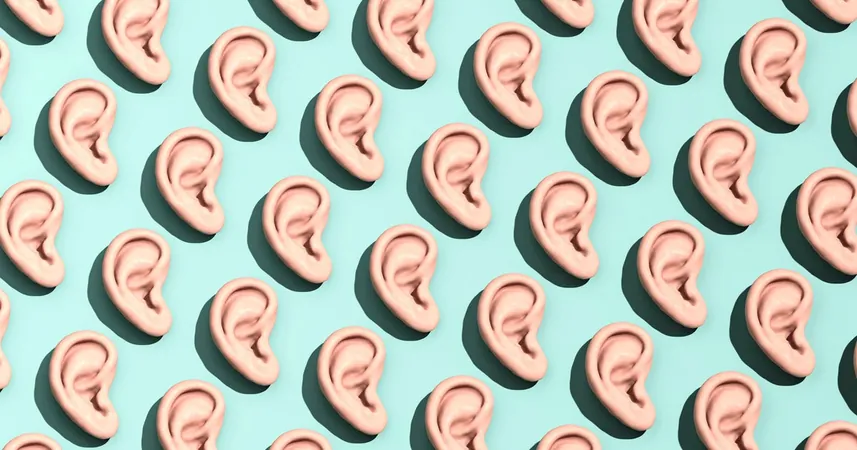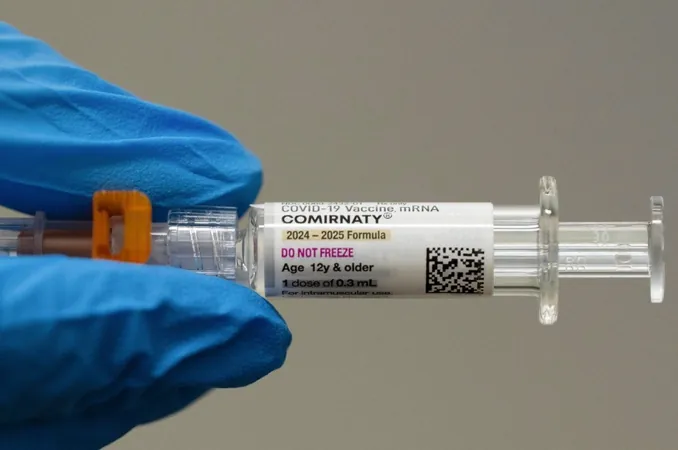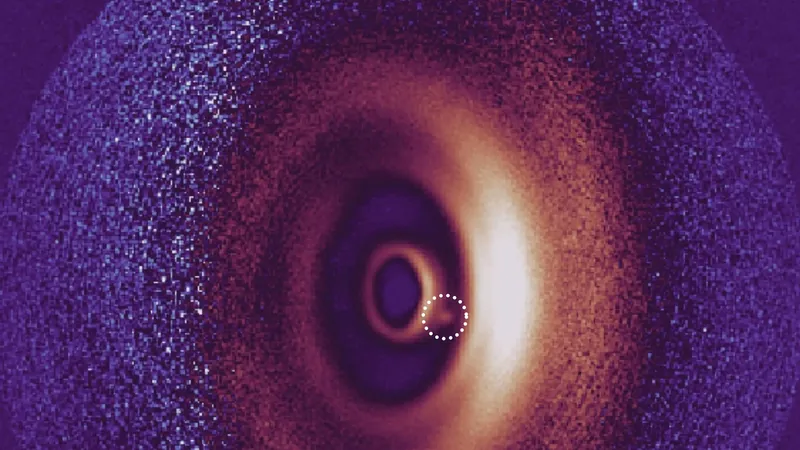
The Ultimate Guide to Safely Cleaning Your Ears: What You Need to Know
2025-08-24
Author: Michael
Earwax is often seen as a nuisance, but it actually plays a vital role in protecting our ears. Before you reach for that cotton swab, here’s why you might want to think twice.
Why You Probably Don't Need to Clean Your Ears
Experts confirm that most people don't need to remove earwax at all. Dr. Erich P. Voigt of NYU Grossman School of Medicine explains that earwax acts as a natural barrier, waterproofing the ear canal and preventing infections. It keeps the ears lubricated and combats dryness and itchiness.
According to Dr. Lawrence R. Lustig, ears are self-cleaning. If evolution designed our bodies, how likely is it that we’d need to clean our ears manually? Nature equipped us with a self-sufficient system.
How Earwax Actually Works
Dr. Lustig describes the process as a 'conveyor belt of skin.' As old skin cells migrate out from the eardrum, they mix with oils from the ear canal, forming earwax. For most people, this system works flawlessly, removing wax naturally—thanks to activities like chewing and talking.
The Risks of Cleaning Your Ears
If you feel compelled to clean your ears, ditch the Q-tips! The packaging even warns against inserting them into your ear canal. Instead of cleaning, they often push wax deeper, leading to blockages and infections. Dr. Lustig notes that many earwax infections surface because of Q-tip misuse.
Using cotton swabs not only worsens clogging, but can also dry out and irritate the sensitive skin inside your ear.
Avoid the Trend: Ear Candles Don’t Work!
Despite their past popularity, ear candles are more harmful than helpful. Studies show they don't effectively remove wax and pose severe risks like burns. Dr. Lustig humorously remarks that while the trend might return, it’s best to steer clear of such dangerous methods.
A Safer Way to Clean Your Ears
If you still want to freshen up your ears, focus on the outer area. Just use a damp washcloth to clean around the opening. Experts recommend letting your body handle most ear cleaning naturally.
As for cleaning solutions like Debrox or hydrogen peroxide, follow the directions carefully to avoid damaging your eardrum. Generally, you lie on your side, apply a few drops, wait, then flush gently with warm water.
When to See a Doctor
If you notice issues like clogged hearing, it's time to consult a healthcare professional. Blocked ear canals can lead to discomfort and echo-like hearing. Moreover, what may seem like a simple wax issue could indicate a more serious condition.
Don't risk your hearing; it's wise to involve experts when things go awry.









 Brasil (PT)
Brasil (PT)
 Canada (EN)
Canada (EN)
 Chile (ES)
Chile (ES)
 Česko (CS)
Česko (CS)
 대한민국 (KO)
대한민국 (KO)
 España (ES)
España (ES)
 France (FR)
France (FR)
 Hong Kong (EN)
Hong Kong (EN)
 Italia (IT)
Italia (IT)
 日本 (JA)
日本 (JA)
 Magyarország (HU)
Magyarország (HU)
 Norge (NO)
Norge (NO)
 Polska (PL)
Polska (PL)
 Schweiz (DE)
Schweiz (DE)
 Singapore (EN)
Singapore (EN)
 Sverige (SV)
Sverige (SV)
 Suomi (FI)
Suomi (FI)
 Türkiye (TR)
Türkiye (TR)
 الإمارات العربية المتحدة (AR)
الإمارات العربية المتحدة (AR)